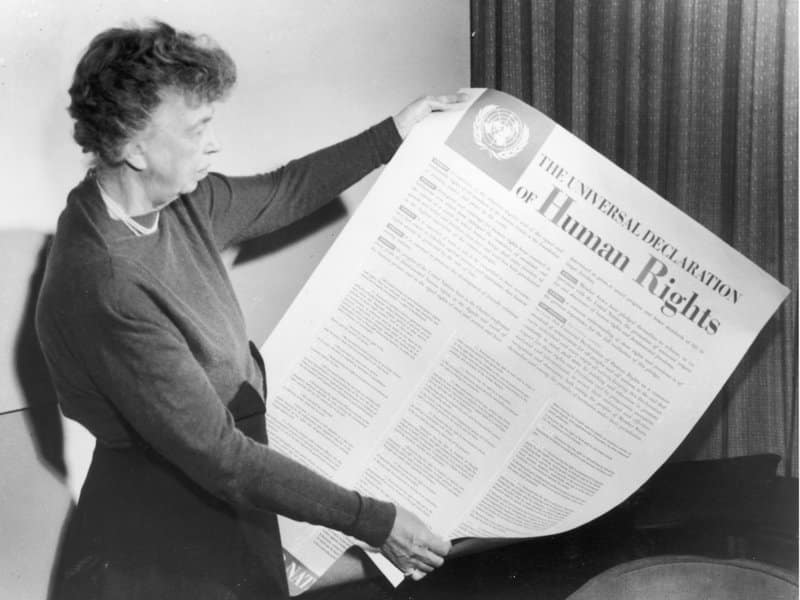The soldier is highly revered when he dies for his country. He is labeled as a “true patriot”, a man that went to ultimate lengths for his nation. While the term “patriot” is used ubiquitously, its meaning remains in fluctuation.
According to renowned former first lady Eleanor Roosevelt, “[t]rue patriotism [is the] belief in the dignity of the individual, freedom, and equality not only for the Americans but for all people on earth, universal brotherhood, and goodwill, and a constant striving toward the principles and ideals on which this country was founded” (1).
Roosevelt is accurate in her definition of patriotism, and her felicitous claim is evident in the founding doctrines of America and in the core of every “true patriot’s” beliefs.

Roosevelt’s profound claim rings true even in the country’s fundamental values. The U.S. constitution contains in its preamble the popularly cited phrase “All men are created equal.”
The word “all” encompasses the whole world, not just a select few members. In order to be a true patriot, one must adhere to all its laws, and as such must believe in “equality not only for the Americans but for all people on the earth” (1).
The U.S. was founded on equality and is such an important ideal for the country that it is prescribed into law. To be a committed nationalist, one must follow all the laws and thus promote equality for everyone.
Moreover, the U.S. became an independent country in order to extend freedom to all of its residents. In fact, the government is created in such a manner that the common folk are given more power than the elite.
Universal freedom is a right ingrained into the structure of the country, and a loyalist must acknowledge individual autonomy to even be considered a citizen. Roosevelt brilliantly claims patriotism springs from a “constant striving toward the principles and ideals on which this country was founded”, and thus any citizen desiring to be known as a patriot must endeavor to achieve ubiquitous equality and freedom.
Naysayers argue that patriotism is best defined as going to extreme lengths to preserve the country one serves. In some ways, this is true. Dictionary.com defines a patriot as “a person who […] supports and defends his or her country and its interests with devotion” (1).
The definition of a loyalist may imply complete obedience to a country, but such compliance may actually detract from the true intent of nationalism. As the disciple, James says, “faith without works is dead”, so patriotism without an understanding of its principles “is dead” (James 2:14).
Nationalism is action based on a belief in a nation’s principles. As the acclaimed Eleanor Roosevelt states, the principles of the U.S. are “dignity of the individual, freedom [,…] equality, […] universal brotherhood and goodwill” (1).
Without understanding and fully believing these principles, chauvinism is rendered obsolete. Action must be the product of a rationale, and just as how faith without action is useless, loyalism without a sound understanding of its philosophy is baseless.
Eleanor Roosevelt is indubitably correct in her definition of patriotism. Although Roosevelt made these revolutionary claims almost fifty years ago, modern western nationalism still has long strides to make before it bears semblance to Roosevelt’s.
Many Americans still see equality as a privilege best fit to be hoarded for themselves, and true, universal freedom is still a lofty goal for ‘the land of the free’.
Hence, current American society has much to learn from Roosevelt and her definition of philanthropic loyalism, and society will continue to draw wisdom from her regarding this unbridled national zealotry for decades to come.

Way to put everyone’s thoughts into words, it’s a great paper. Love the analysis.